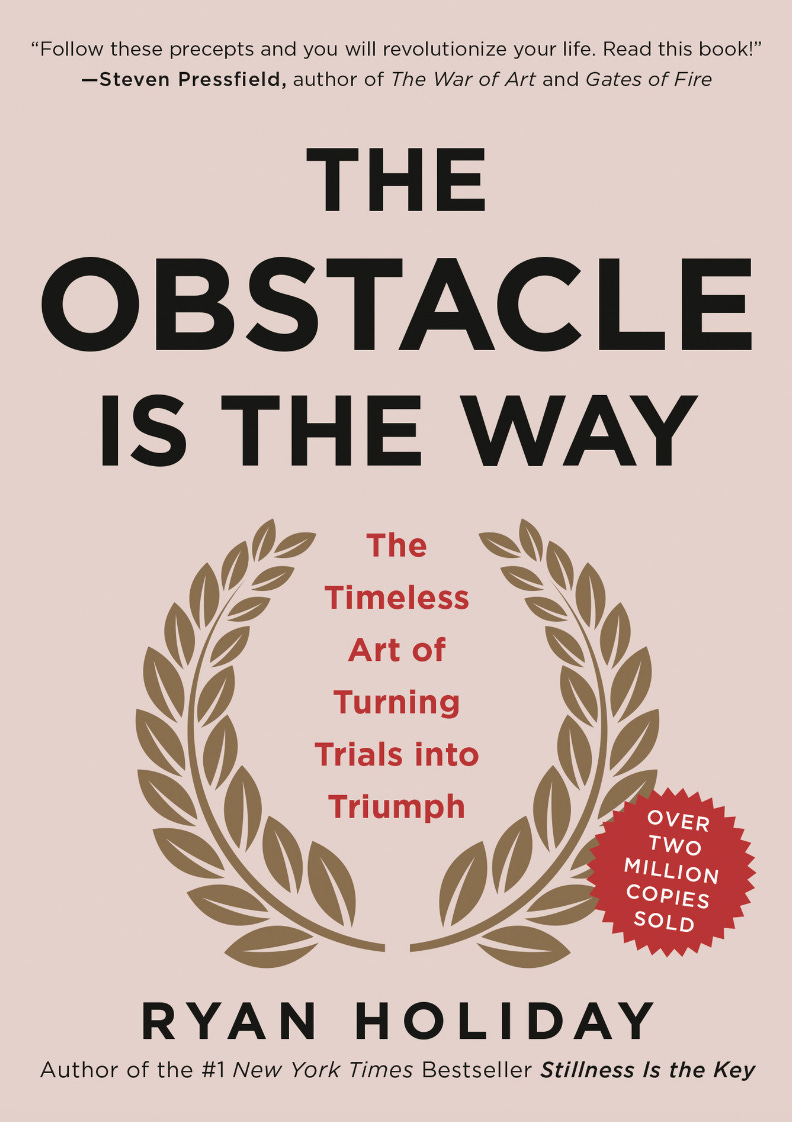Hello, Adversity Weekly Roundup #22 - July 1, 2023
The greatest hospitality story ever told, succeeding on your own timeline, some of my favorite weekly newsletters, and more

Happy Saturday everyone!
Welcome to the 22nd edition of the Hello, Adversity Weekly Roundup. I hope you had a great week.
While I was driving back from Philadelphia last week—if you consider sitting in endless traffic “driving”—I was thinking about the future of this weekly roundup newsletter, and how to make it even better. (For example, should I start calling it by its acronym, HAWR? Or is that too cringeworthy?)
When I started HAWR (er, the newsletter) back in January, I didn’t know if I would enjoy writing it every week, but have been pleasantly surprised. It keeps me on a consistent writing schedule and allows me to share a little bit of my personality with you every week.
One change I am going to make in the future is to give it a little more structure with consistent categories. For example, every week might have one feature piece, one news story, one recommendation, etc. I like receiving a newsletter and knowing exactly what to expect and want this to be the same way. Be on the lookout for an updated format sometime soon!
While we’re on the topic, if you have a favorite roundup-style newsletter (one that shares various links or articles every week), feel free to let me know in the comments section. I am always looking for inspiration. I’d also love to know why you like it.
Here are a few of my favorites:
Austin Kleon’s 10 Things Worth Sharing This Week
Not Boring’s Weekly Dose of Optimism
Without further ado, here are this week’s links:
This is an incredibly moving story by Adam Reiner about the staff at the Kimpton Hotel Monaco in Philadelphia who cared for his uncle, Robert, in the final days of his cancer journey. Robert stayed at the hotel periodically when he was in town for radiation treatments at a local hospital, but when he became too weak to return home to New York, the hotel staff sprang into action to make his final days as comfortable as possible.
Be forewarned—this is not an easy read, as it involves cancer and death. However, what makes this story worth reading is the incredible way the Hotel Monaco staff went above and beyond to help Robert and his family. The experience was so transformative for the staff that they now offer this level of service for any guests facing serious illnesses.
Sadly, we don’t hear too much about this level of kindness on the news, only stories of human folly and violence. Kindness doesn’t court publicity; it (almost) always flies below the radar. But it’s there if you know where to look.
This article reminds me of a piece Sarah Langs wrote that I included in my newsletter a few weeks back. In her piece, Langs says:
We should be telling people who aren't dying how much we appreciate them. We should be approaching each day with that mindset.
Langs reminds us that we can show anyone this level of kindness, this kind of love and compassion, right now, whether it’s a loved one or a stranger. An act of kindness, no matter how small, can change someone’s life.
One of the topics I mention periodically on Hello, Adversity is the false notion that we have to hit life milestones by a certain age. (Think marriage, kids, a promotion, education, retirement, etc.) It is easy to get down on ourselves when we feel as though we’ve missed out on an important life goal that we wanted to achieve, simply because it didn’t happen in the timeframe we expected. Society tells us we should have done something by a given age, and when it doesn’t happen, we can’t help but play the comparison game.
But here’s the thing—there are almost always examples of someone achieving something at a later age than what society expects.
That’s what I like about this Wall Street Journal article. It seeks to dispel the notion that life needs to happen on a predictable schedule:
Instead of feeling pressure to hit life events on someone else’s timeline, maybe it’s fine to make our own.
The article explores why we worry about hitting milestones by a given age and highlights several different people who have hit their stride later in life. These personal stories are helpful reminders that just because something hasn’t happened yet, doesn’t mean it never will.
In fact, the delay might be a blessing in disguise. Take Danielle Ponder, a singer in her 40s who started off her career as a lawyer. She feels fortunate that her success came later in life:
A gifted singer, she chose a career in law because she was passionate about criminal justice and wanted the stability of steady work. She sneaked in shows between court dates instead of committing to music full time.
“I kept pushing the moment back,” she says. At one point, she quit her day job, only to return a year and a half later, thwarted by the pandemic and disappointing bookings. “As I was getting older, my dreams did become smaller,” she says.
On the last day of 2021, five days before her 40th birthday, she tried again. This time, quitting her job led to a debut solo album, television appearances and sold-out shows. When I caught up with Ponder recently on a rare mid-tour pause, she was feeling both shocked and grateful her success came when it did.
“I don’t know if I could survive this happening to me at 19,” she says. She thinks her insecure teen self wouldn’t have handled the stress of the public eye well.
If you feel like life is passing you by, don’t fret. We are all unique. We all have different circumstances. Life might be unfolding at exactly the right pace for you.
(This is what I like to remind myself when I fall into the comparison trap.)
As an employee of the Muscular Dystrophy Association (MDA) and a member of the neuromuscular disease community, I understand all too well the perils of air travel with a disability. Part of the reason my road trip to Philadelphia was so complex is because I don’t want to fly. It’s not that flying is impossible—it can be done—it’s just a miserable experience. There is the potential for injury from all the transfers and you have to hope and pray that your wheelchair isn’t destroyed by baggage handlers. And if you have to use the bathroom on the flight….good luck.
MDA recently followed one of our community members, Madison Lawson, as she flew to Washington, DC to speak to lawmakers about the importance of accessible air travel. The Federal Aviation Act (FAA) is currently being reauthorized, and it is important for the disability community to have a seat at the table to discuss ways to improve air travel for wheelchair users. Believe it or not, air travel is not covered under the Americans with Disabilities Act!
(If you are US-based and would like to send a note to your elected representatives to tell them to prioritize air travel accessibility, you can do so here.)
In a perfect world, a wheelchair user would board a plane and stay in their wheelchair for the duration of the flight. Unfortunately, we are not there yet. That’s why advocacy is so important.
However, progress is being made, even if it’s slow. The first step was to develop a retractable airline seat. Consider that hurdle cleared:
Finished reading: The Obstacle is the Way, by Ryan Holiday
I have read Ryan Holiday’s other books (Stillness is the Key, Ego is the Enemy, Discipline is Destiny, Courage is Calling) and found each to be accessible reads on the different Stoic virtues. The Obstacle is the Way is a similar format—a quick read full of interesting anecdotes and stories.
What I like about Holiday’s books are the historical examples. He is a voracious reader and can connect concepts (in this case different ways of overcoming obstacles) to famous people in history who faced similar challenges. From Amelia Earhart to Abraham Lincoln, Jack Johnson to Steve Jobs, people throughout history have faced the same obstacles we face today, even if the circumstances are different.
The Obstacle is the Way is broken into three sections: perception, action, and will, mirroring the three-step formula for handling adversity described by Roman Emperor Marcus Aurelius. Our first task is to perceive the obstacle before us objectively. Then, we must act. And for those times when action isn’t enough, we must cultivate the will to simply accept reality, or persist as long as necessary until a solution presents itself.
I found that the most useful part of this book was the last section—cultivating will. Accepting what I can’t control has been the hardest part of living with a muscle disease. But every time I have come to accept what is out of my hands, it has led to personal growth.
If you have a story you’d like me to include in a future newsletter, please email me at HelloAdversity@substack.com or leave a comment below.
Follow Hello, Adversity on Instagram!




That is the greatest hospitality story ever told, Christopher. Beautiful. And I am beyond a late bloomer. I'm finally okay with it. It's almost like waiting to unwrap a present. xo
I've opened up Adam Reiner's piece and am saving it for a moment when I'm emotionally prepared to ugly-cry. It look like a profoundly moving read.
On the topic of roundup newsletters: I read a lot of of these, many of them containing cultural or product recommendations. I always appreciate discovering new TV shows and movies, but often find those newsletters to be somewhat-forgettable gateways to discovering something else. What I appreciate about your roundups is not only the quality and diversity of what you're sharing, but the depth of your thoughts on each—to me, that's what sets a roundup newsletter apart.